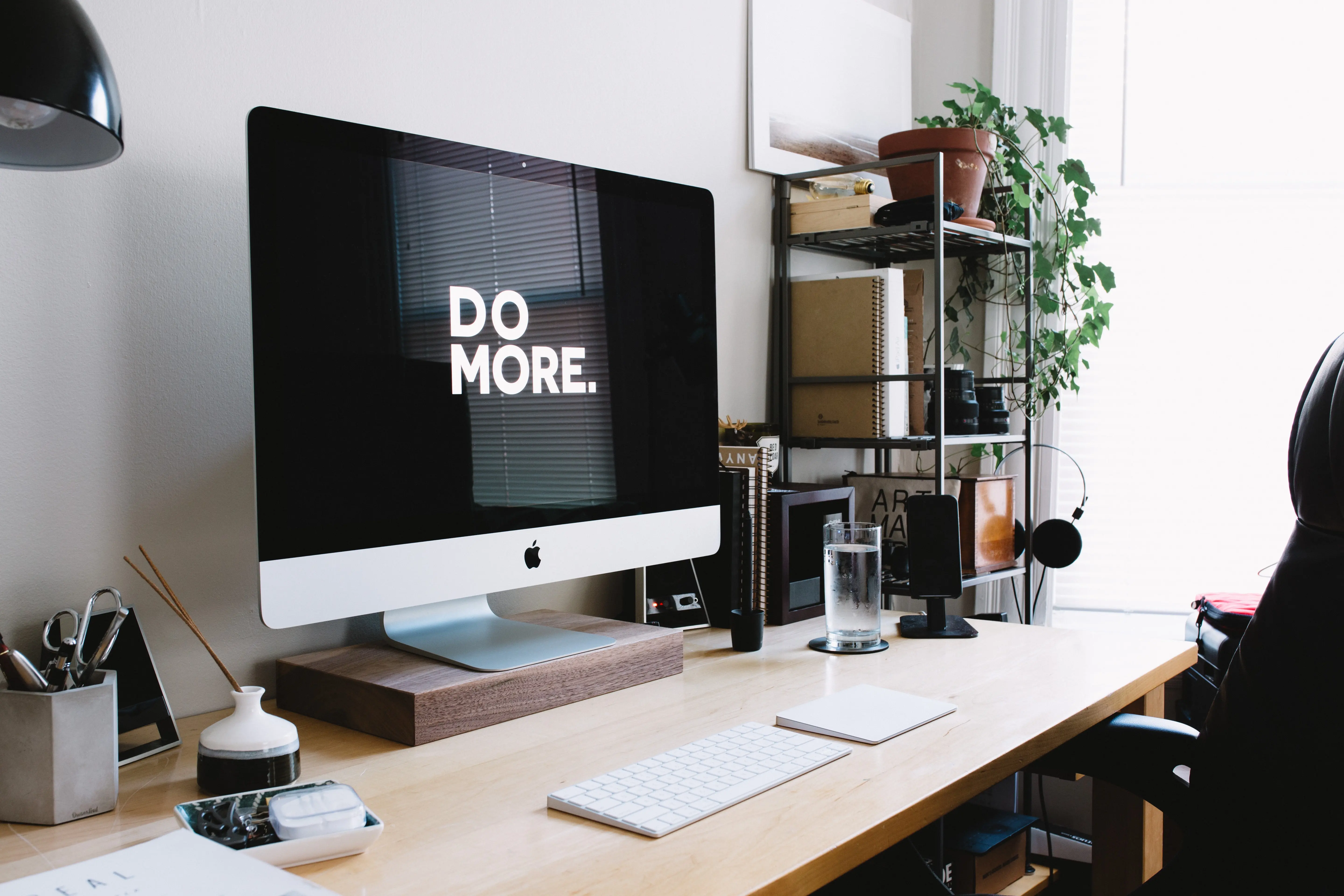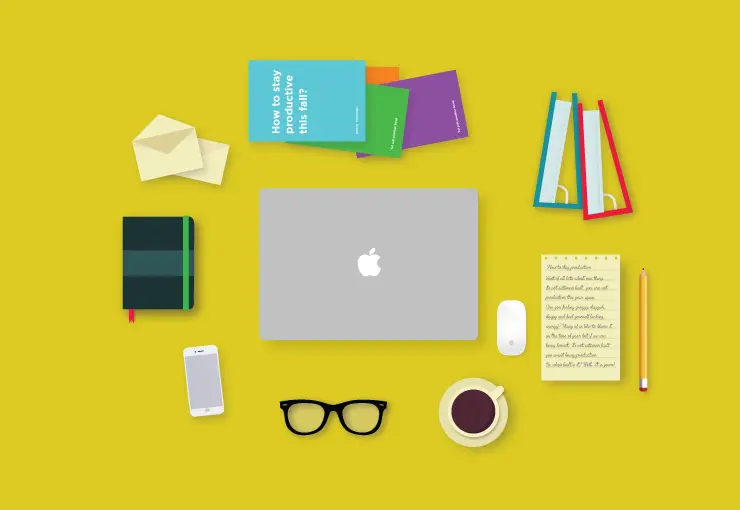

Are you feeling groggy, sluggish, sleepy and find yourself lacking energy this fall again? Many of us like to blame it on the time of year but let’s be honest, it’s not autumn’s fault you aren’t being productive. So, who’s fault is it then? Well… It is yours!
Although fall and winter are often viewed as less productive seasons, if you look around there are still some people who work like a swiss watch. So, are these people programmed differently or are they just better managers of their day-to-day lives?
Whether you work from home or remotely, feel well or sick, love your job or hate going into an office every morning, you deal with the challenges of the digital era. Take a moment to think about it, how much of your procrastination, phubbing, multitasking issues and endless distractions are directly related to your own technological temptations to surf the web, read the news, play with your phone, login to social media accounts or check your personal email? That’s it, that’s exactly what I’m talking about!
While working in a software house, we surely deal with day-to-day distractions. Technologies — we love them, even though they seem to go along with lots of side effects.
Avoid the side effects of procrastination with our 10 tips for helping you stay on task.
1. Meet Deadlines
When you fail to meet deadlines, it makes you look as if you are an irresponsible employee. To avoid missing due dates, use deadlines to motivate you to complete tasks so that you are available to take on new challenges. Identify and understand what works for you and stick to those habits. For instance – if you are a morning person, complete your most challenging duties early in the day. Also remember to be realistic about estimating the required time it will take to finish each task and lastly, don’t forget to celebrate your success! Rewards are beneficial because they will help you maintain a positive attitude.
2. Divide and Conquer
Nothing is impossible when you put your mind to it. It is true that in the moment, tasks can seem as if they are impossible due to their large size or extreme difficulty but this just means, you may have to think outside the box. Don’t panic because often, it helps to stop, take a deep breathe and rethink your working process. This shouldn’t be too hard if you take the divide and conquer approach. Break the large project down into smaller chunks and complete it one step at a time because the smaller the step, the more manageable it will be.
3. Force Yourself to Focus
It is impossible to focus on all tasks equally. Plus, it doesn’t help that there are tons of distractions during our day-to-day work routines. I mean, have you seen the series of funny cat compilations on YouTube? In addition, there are a lot of other distractions that may not even be initiated by us, but the environment that surrounds us. For example there may be coworkers that have “just a tiny little” question, phones ringing, random noises from outside or the worst distraction of them all, the internet! If distractions start hijacking your day and you find yourself unable to get your work completed, I have the perfect advice for you! Force yourself to focus. How can you do this? Start putting up away messages or do not disturb requests when you are not available for others and during this time, ignore all other obstacles so that you can stay focused on the task at hand.
4. Control Your Workflow
Maintain full control over your workflow by getting into a working routine that helps you stay on track and organized. Have long-term (weekly and/or monthly) to-do lists to stay on top of deadlines and short-term (daily) lists to keep track of daily agendas. It doesn’t matter if you use a set of applications or an old school notebook to physically write down your tasks, it is all about controlling your routine so that you don’t miss anything important. Other helpful suggestions include regularly updating your calendar, marking accomplished tasks as complete, recording new tasks, summarizing weekly and/or monthly activities, gathering feedback from your superiors and drawing conclusions from that information.
5. Develop a Set of Healthy Habits
Even though everyone understands how important it is to exercise regularly and eat healthy, the majority of us have many reasons not too. Whether it is because we have too much work, are too tired or think we don’t have enough time, the excuses are poor and must be stopped! Even a limited amount of physical activity per day (say, 15 minutes) is enough for you to reap the benefits. The same goes for selecting a healthy snack instead of scarfing down junk food. In making these small changes you’ll not only feel healthier, you will prove to be more productive as well!
6. Remember to Take Breaks
You are not a robot so while working, you surely need to take breaks. Whether you are grabbing a cup of coffee, having a friendly chat with colleagues or taking a short walk, it is healthy for you to briefly walk away from your desk. Many people don’t realize this but usually after taking a short break, they are able to sit down and work more efficiently. With that being said, it is still important to take your breaks wisely because if you aren’t careful, they can have the opposite effect and prove to be a real waste of time. Procrastination can often be contagious so just be aware of your surroundings and know when to cut off unnecessary distractions.
7. Learn to Manage Time
Nowadays, there seems to be a science to time management. At first, doing several things at once can seem as if it is boosting productivity. However, that is definitely not the case. Multitasking is often counterproductive because aside from not being able to focus, it is believed that your mind and body will get tired faster since your attention is scattered. As a result, your productivity will be significantly reduced and your memory, negatively impacted.
8. Organize Your Workspace
When your workspace is a mess, it can be harder to deal with serious tasks. The legend of how creative chaos inspires doesn’t really work especially, within an office environment. If your desk and work area (both physical and virtual) is well organized, you’ll have less distractions and problems finding things. Another thing to consider is changing up your workspace once in a while. For example, it may be nice to take some of your work outside, to a coffee shop or to a coworking space. Providing yourself with a change in atmosphere can boost creativity and help you finish something you may be stuck with.
9. Stop Procrastinating with Social Networks
Trust me, you won’t miss much if you stop checking the news and tracking the online activity of all of your friends. Sometimes, companies help their employees avoid wasting time by restricting access to social networks. Plus, it is usually in a company’s best interest to squeeze out the maximum amount of productivity from their employees. If you work for a more liberal company such as 10Clouds, it is up to you to monitor your own behavior. It is wise to temporarily limit access to websites that you find, absorb too much of your time.
10. Cut the Cord and Unplug
I know, cutting the cord sounds like a mission impossible but it’s beneficial to unplug from time to time. When you commit to cutting the cord for a designated period of time, it is easier to recharge. Plus, you’ll be proving to yourself, that you can survive without your gadgets. It is wise to occasionally challenge yourself to unplugging for an entire weekend but if you can’t handle that, try to at least, avoid all technology for an hour before you go to sleep. This healthy habit, often referred to as the Amish hour habit, is helpful for winding down before bedtime and contributes to getting a better night’s rest.



